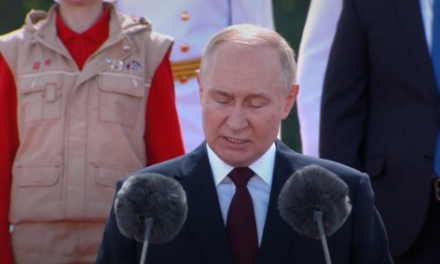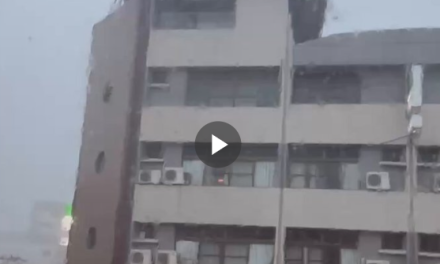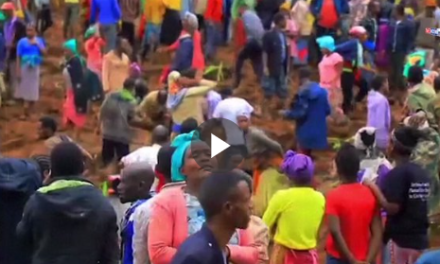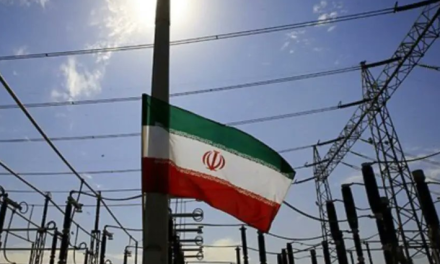We all know what is going on. Like in the U.S. in 2020.
As the announcement echoed that Nicolás Maduro secured a third term as President of Venezuela, fireworks lit up the night sky over Caracas, a spectacle choreographed as meticulously as the election itself. The opposition, however, swiftly disputed the results, insisting that they were the true victors. This contradiction wasn’t visible on local television, which portrayed jubilant crowds adorned in Venezuelan flags, celebrating Maduro’s victory.
Maduro, still commanding a base of supporters known as “Chavistas” after his predecessor Hugo Chavez, faces skepticism over the election’s integrity. The result has sparked immediate controversy, with nine South American countries calling for a comprehensive review of the electoral outcome and an emergency meeting of the Organization of American States (OAS).
Protesters are tearing down statues of Hugo Chávez as supporters of opposition candidate Edmundo Gonzalez claim he won a “landslide victory” over communist dictator, Nicolás Maduro, who they say rigged the election.
Elon Musk, Nayib Bukele, and Marco Rubio have called the… pic.twitter.com/N1GRYUDlwv
— Charlie Kirk (@charliekirk11) July 29, 2024
On election day, I witnessed firsthand the extensive queues at polling stations, where only a trickle of voters was allowed inside at any given time, leading to accusations of intentional delays. At one station, the arrival of international media prompted a sudden surge of 150 voters being admitted, hinting at orchestrated efforts to manage perceptions. Some polling places didn’t open at all, inciting protests and clashes. Allegations surfaced that state employees, including police trainees, were directed on how to vote. Adding to the suspicion, President Maduro’s image was prominently displayed above polling stations, a reminder of his pervasive influence. His party even provided incentives like buses and free food parcels to rally supporters.
Even before accusations of outright fraud, there were concerns about the fairness of the contest. Opposition candidates were barred from running, aides were detained, and many Venezuelans abroad faced hurdles in registering to vote. International election observers were notably absent, further fueling doubts. The opposition, who had led in opinion polls, argue that these tactics were necessary for the government to claim a victory that would otherwise seem implausible.
Chavistas are celebrating the election victory of Nicolás Maduro in Venezuela. However, the US-backed opposition refuses to recognize the results and is likely to call for violent protests in the coming days.
The National Electoral Council of Venezuela has declared Nicolás… pic.twitter.com/NS3miqXapD
— red. (@redstreamnet) July 29, 2024
Now, the opposition is alleging a more specific kind of electoral fraud, claiming they only had access to 30% of the paper receipts from electronic voting machines, raising concerns about the potential for tampering. They also allege that many of their observers were barred from observing the vote count. The government denies any wrongdoing, countering with accusations of foreign intervention.
The aftermath of this disputed election remains uncertain. The opposition has announced plans to challenge the results and has called for detailed proof of the government’s vote counts. The international community’s response, particularly from those critical of U.S. sanctions that have impacted Venezuela’s economy, will be crucial. These sanctions have contributed to widespread poverty and a mass exodus of Venezuelans, with half the population now living in dire conditions.
BREAKING – Massive number of people in Venezuela have taken to streets, roads and highways across nation to protest against Nicolas Maduro’s election victory claim pic.twitter.com/9dfNCzHal7
— Insider Paper (@TheInsiderPaper) July 29, 2024
The outcome of this election and the international reaction could significantly impact Venezuela’s future. The country, with its vast but underutilized oil reserves, remains a geopolitical player, aligning with Russia, China, Cuba, and Iran. The opposition is gearing up for a fight, determined not to concede without a challenge. The next steps are pivotal for a nation at a crossroads, facing internal strife and external pressures.
Major Points
- Nicolás Maduro declared victory in Venezuela’s presidential election, prompting a carefully choreographed celebration in Caracas.
- The opposition swiftly contested the results, asserting that they were the true winners, despite state-controlled media only showing pro-Maduro celebrations.
- Election day saw accusations of voter suppression and manipulation, including restricted access to polling stations and alleged instructions to state employees on how to vote.
- The opposition alleges limited access to essential voting receipts, raising concerns about potential vote tampering and a lack of transparency in the count.
- International response is critical, with nine South American countries calling for a full review of the results and the Organization of American States (OAS) convening an emergency meeting to address the crisis.
Susan Guglielmo – Reprinted with permission of Whatfinger News







